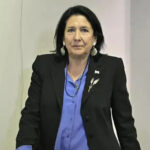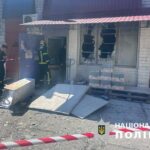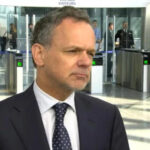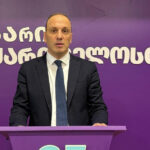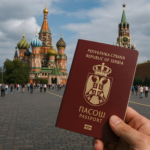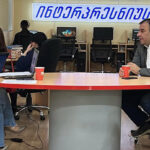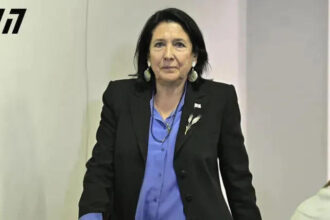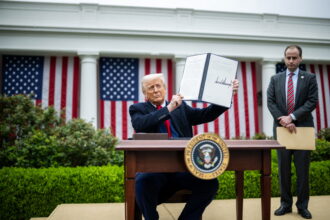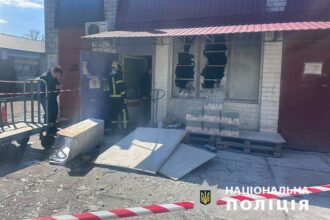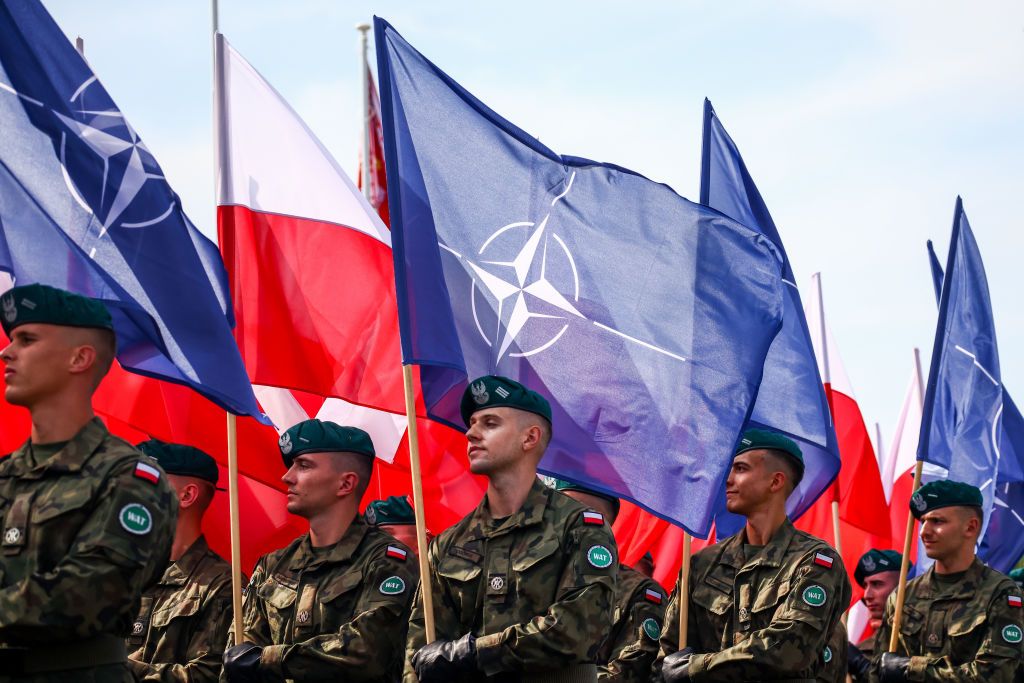“What we’ve seen in the last two years is that you could achieve relatively high growth by providing enormous fiscal support.” Financial analyst: “The problem is that you are mortgaging your own future.”
The Kremlin submitted a draft budget to the Russian Parliament last month, outlining its plans to maintain high spending in its wartime economies. It also outlined its ambitions to maintain steady growth levels in the country since its full-scale invading of Ukraine in February of 2022.
The International Monetary Fund increased its growth forecast for Russia in 2024 to 3.6% on Oct. 22, due to the escalating government spending on war production and defense.
The budget for the next three years, which aims to increase military spending to post Soviet record levels, demonstrates Moscow’s commitment towards a long war. Analysts warn, however, that rising inflation and a worsening labor shortage may cause Russia’s sanctions-ridden economy to turn.
“What we’ve seen in the last two years is that fiscal support can be used to achieve relatively high growth. The problem is that you are mortgaging your own future,” Alexander Kolyandr told the Kyiv Independent, a non-resident scholar and financial analyst at the Center for European Policy Analysis.
After Western sanctions caused a shockwave in the Russian economy after its invasion of Ukraine, in February 2022 – plunging the ruble down by over 30% – and drove up consumer prices by almost a fifth, the Russian Central Bank implemented tight capital controls. This allowed the Kremlin spend its way out a brief recession and quickly put the economy on a wartime footing.
Janis Kluge is an expert on Russia’s economics at the German Institute for International and Security Affairs.
Kluge said that this windfall payment, combined with the record revenues from oil and gas following the start of a full-scale war, provided a safety net to the economy. It allowed Moscow to increase its expenditure in certain industries, which led to an increase in GDP.
The draft budget outlines Moscow’s ambitions for maintaining high levels of spending in order to keep the wartime economy afloat. The total budget expenditures in 2025 are expected to reach 41.5 trillion rubles. This is an increase of roughly 13% over the 36.6 trillion rubles spent in 2024. Nearly 41% of that amount will be spent on security and defense, which is more than the combined government expenditure on education, healthcare and social policy.
The Kyiv Independent reported that this sum shows Moscow’s willingness to continue its war with its neighbor to the west. It also indicates the Kremlin is aware that it may take decades to rebuild its armed forces following nearly three years of costly combat. Dara Massicot is a senior fellow of the Carnegie Endowment for International Peace.
The budget proposals are conservative in their estimates of oil and gas revenues. They expect them to drop to 10.9 trillion Russian roubles by 2025, down from the 11.3 trillion roubles that were expected this year.
“We are now working to minimize the impact that oil prices have on the budget. The overall share of cash received from the sale oil and gas is decreasing. If this figure was 35-40% a few short years ago, it will drop to 27% in 2025, and to 23% in 2027,” Russian Finance Minister Anton Siluanov said to RT Arabic.
Kluge said that weaning off the dependence of the economy on oil and natural gas revenues would take years. The financial system is still highly vulnerable to a sudden drop in oil and gas prices.
“If oil prices were to drop, say, to below $50 per barrel, this would have a significant impact on the Russian economy.” It would lead a significant devaluation of rubles, which would in turn cause more inflation in Russia,” said he.
Inflation in Russia remained high in 2024. The annual figure slowed to 8.63% in august, down from 9.05%. To combat these pressures the Central Bank of Russia has kept interest rates at an unprecedented 19%.
According to the proposed budget, a large portion of the money to fuel this extra spending will be raised by the taxpayers through increases in income and corporate taxes. Kolyandr explained that the Kremlin is currently able to afford to gamble after two years of economic overheating, which has led to an increase in living standards and a record-low rate of unemployment.
Kolyandr stated, “You can see people getting more money and being able to borrow because they were low-paid nonentities yesterday and proud workers for a tank manufacturing facility today.”
To fuel its war effort, the Kremlin is pumping money into the defense industry by offering thousands of new positions at inflated salaries. According to President Putin 520,000 new jobs were created in the industry over the last 18-month period, with social benefits for births of children, and favorable mortgage rates being offered to those who work in this sector.
Even though the pay is three to four times higher than the average salary in the region, there’s still a severe labor shortage across Russia. Analysts warn that this could affect the economy of the country for many years to come.
According to the Federal State Statistics Service, (RosStat), Russia’s unemployment rate fell by approximately 2% after its invasion of Ukraine. It reached a record low of 2.4% in early June of this year. According to The Bell’s investigation, with hundreds of thousands of men sent to war and another 650,000 people fleeing since February 2022 the Kremlin has few options to find workers.
Alexander Verkhovsky is the head of the Moscow based Sova Center that monitors extremism. He said that the war in Ukraine and a number terrorist attacks over the past year have only fueled this sentiment.
Verkhovsky, a Kyiv Independent reporter, said that “the regime is changing” and “this opens up more opportunities for Russian nationalists.” “Because the regime needs to get more support from the bottom due to the war,” he continued, “it has to give these groups more freedom of action.”
Kolyandr stated that the Russian State Duma will adopt five new laws before December, which will further tighten the legislation against migrants. This is likely a response to the populace’s will, but will only make the labor shortage problem more acute.
“In an ideal world, they’d love to import more workers from abroad to join their labor force. Kolyandr explained that given the general attitude in Russia toward non-white, non Christian migrants, this would be a major problem.
The Kremlin instead stated its intention to have the economy adapt to lower levels of unemployment while increasing its productivity. Kluge said that this is unlikely to be enough to overcome the shortage of workers in Russia, due to the many technological sanctions that make it difficult for Russia get its hands on high-tech machinery.
“The cost of labour for companies is increasing significantly.” Some retailers, for example, are trying to do even more with digital cashiers. “But at the same time there are limits because of sanctions. Russia is not able acquire many of these machines that would be needed to replace humans in the production,” he said.
Analysts said that the Kremlin’s long-term economic outlet could be a very grim one, but much will depend on external variables such as geopolitical conditions and the global oil prices.
Kolyandr stated that it is clear that Russia will eventually reach a point where pumping money into the economy will not be able yield the same returns as in the past two and a half years of war.
“Due constraints in the economic, you can’t hire more people, or invest in more production.” “At a certain point you increase your fiscal expenditure, but it does not lead to high economic development,” he said.
“It’s like binge drinking. You drink another glass of alcohol, but it doesn’t make your life better. It only increases your hangover next day.”
James Beardsworth, a freelance journalist, writes about politics, culture and current affairs in Russia and Ukraine. He was based in Moscow prior to Russia’s invasion. He worked previously at The Moscow Times and BBC World Service. Read more
Read More @ kyivindependent.com
